Best euonymus varieties – these hard working, versatile shrubs are a sound investment
Tough and colorful, these evergreen and deciduous shrubs are ideal for dependable ground cover and stunning leaf color

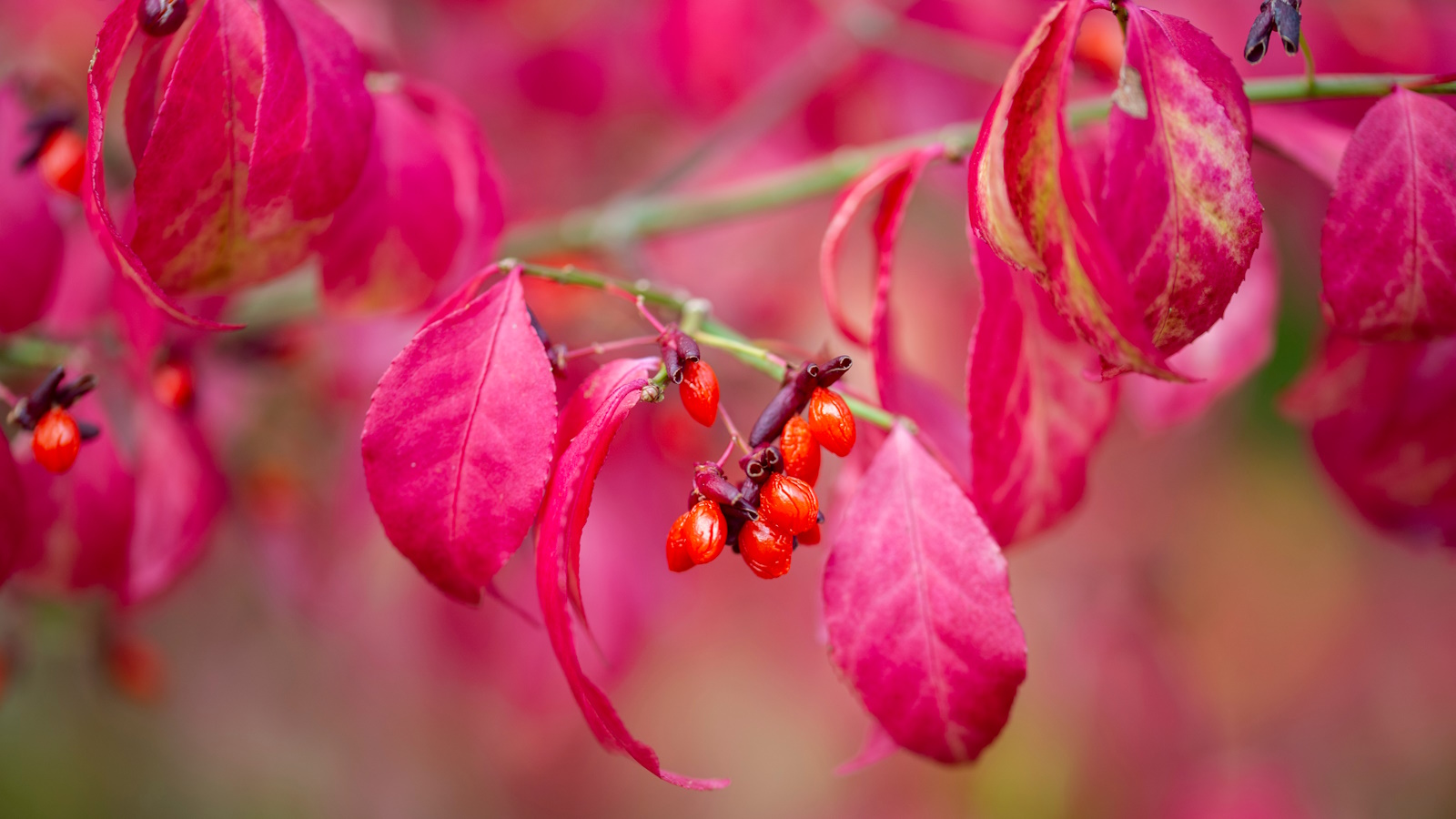
Euonymus are popular almost everywhere. For evergreen ground cover or vivid fall leaf color, euonymus simply cannot be beaten.
They bring us some of the most colorful evergreen shrubs we can grow. Plus, some of the deciduous shrubs that we admire the most for their fall foliage or fruits also turn out to be euonymus.
Sometimes called burning bush, these plants are also among the best fall shrubs for privacy. Deciduous varieties often develop intensely colorful foliage in the fall and, although the early summer flowers are small and dull, they are usually followed by bright fruits. Each fruit comes with a fleshy outer part split into three that surrounds the red seeds; the fruits are far more colorful than the flowers.
Mainly reaching 6-12ft tall, sometimes larger, they make good garden specimens and dramatic medium-height informal hedges. One, however, can be invasive.
Most of the evergreen varieties that we grow belong to just two species: the taller, larger leaved Japanese euonymus, Euonymus japonicus, and the short, often darker leaved wintercreeper, Euonymus fortunei. Both these types have produced a good range of variegated varieties, and these are the ones that are so useful in the garden.
Some of the varieties in this group often make good ground cover, others make great low hedges and are sometimes used as alternatives to boxwood.
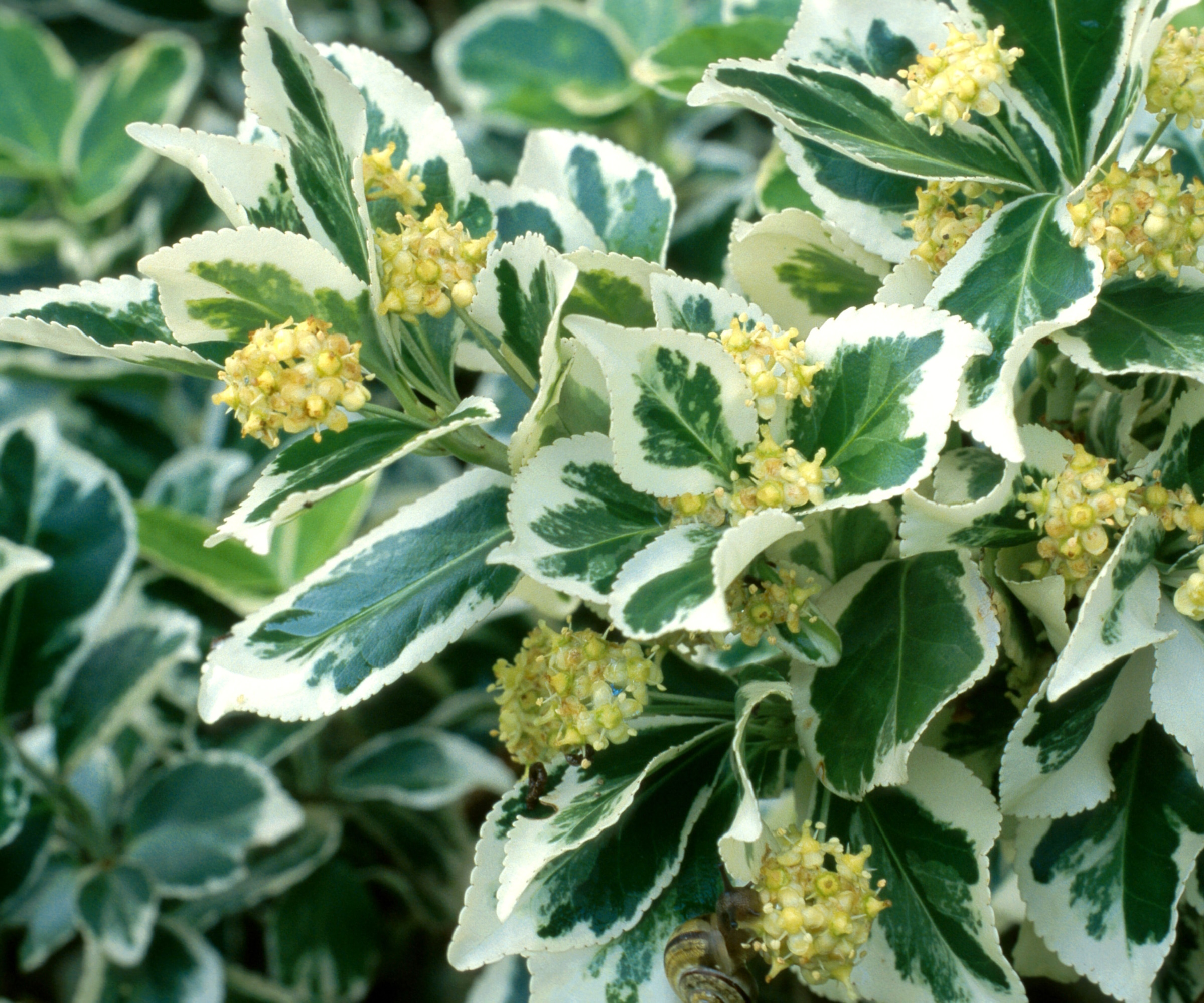
10 of the best euonymus varieties
A versatile and adaptable shrub, evergreens respond well to clipping, either regularly to create a hedge or occasionally to improve the shape. Deciduous varieties are best left unpruned to develop their natural shape.
Design expertise in your inbox – from inspiring decorating ideas and beautiful celebrity homes to practical gardening advice and shopping round-ups.
Here is our pick of the best euonymus varieties to suit any style of yard.
Euonymus alatus
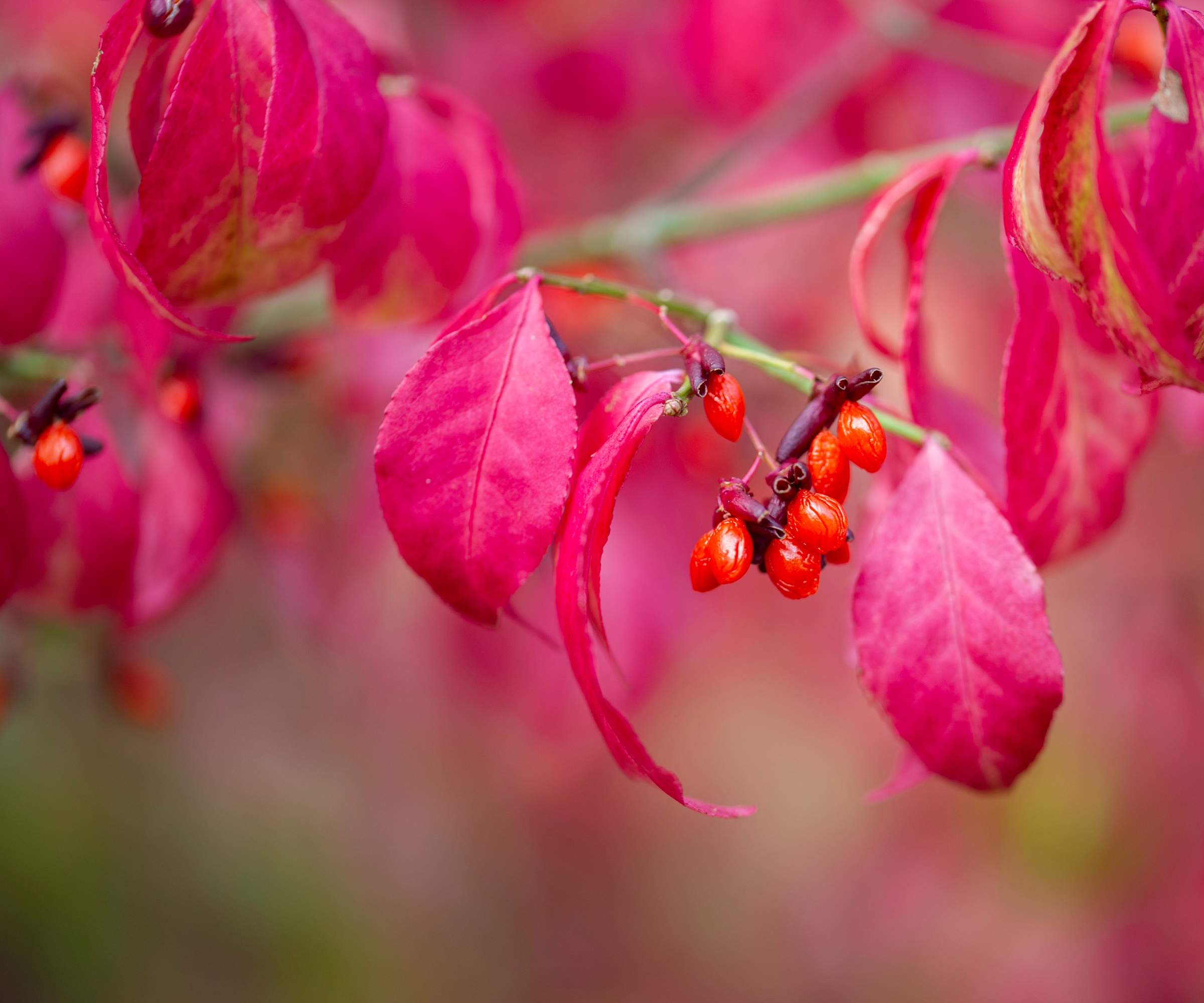
Type Deciduous
Good for Low hedge, small garden specimen
Hardiness USDA Z4
Height 15-20ft
Distinctive corky winged stems carry fresh green summer foliage that reliably turns a dramatic crimson pink in fall and is outlasted by the red and orange fruits. Invasive in the east. Look for the neat and compact 'Compactus’ (3-4ft). Burning bush shrubs are available to buy at Walmart.
Euonymus europaeus 'Red Cascade’
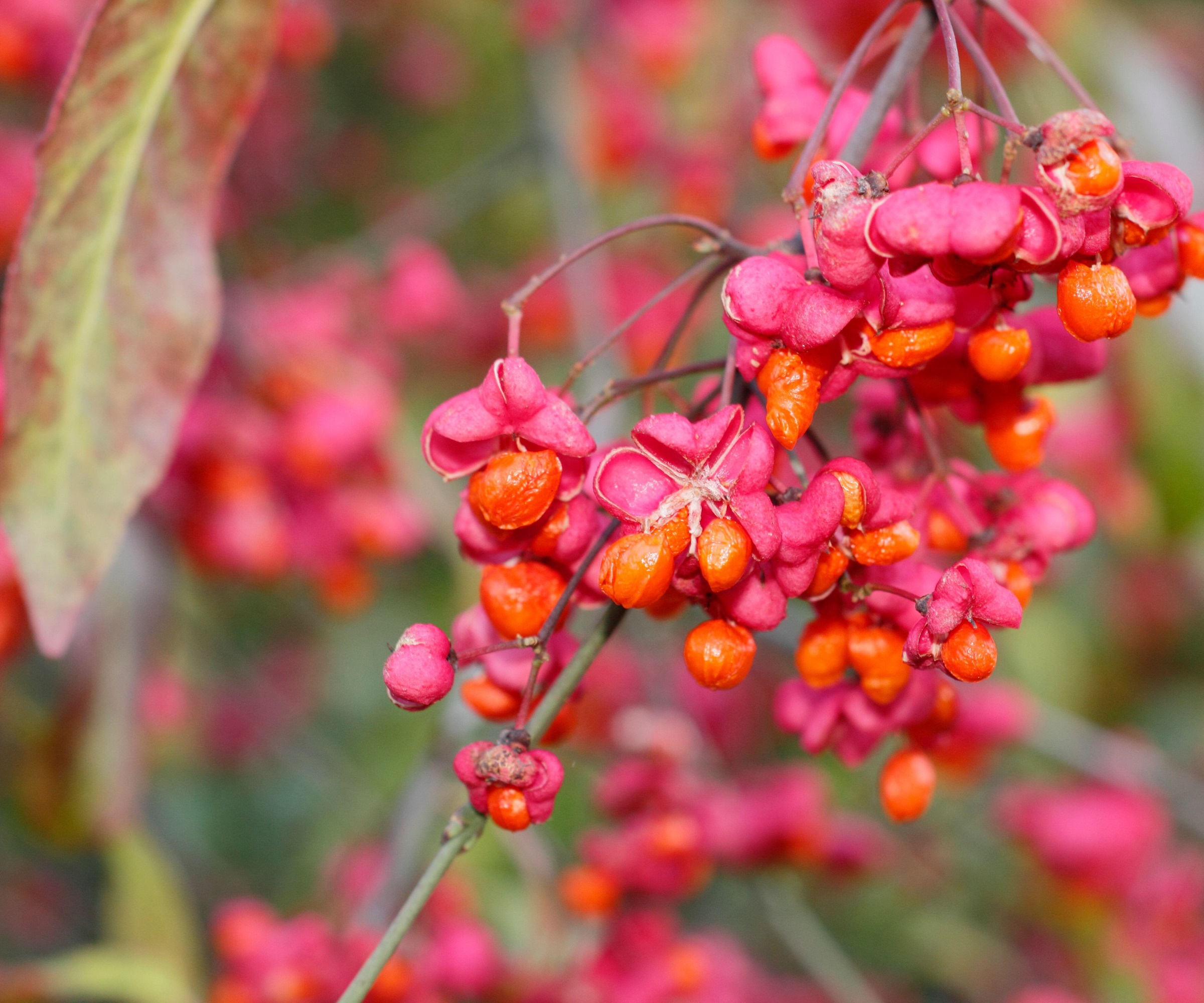
Type Deciduous
Good for Specimen planting and wildlife. Can be trained as a small tree.
Hardiness USDA Z4
Height 8-10ft
This spectacular European spindle tree is laden with bright, scarlet and orange fruits and also carries bright red fall foliage. Fruits more reliably than other varieties.
Euonymus fortunei Blondy (‘Interbolwi’)
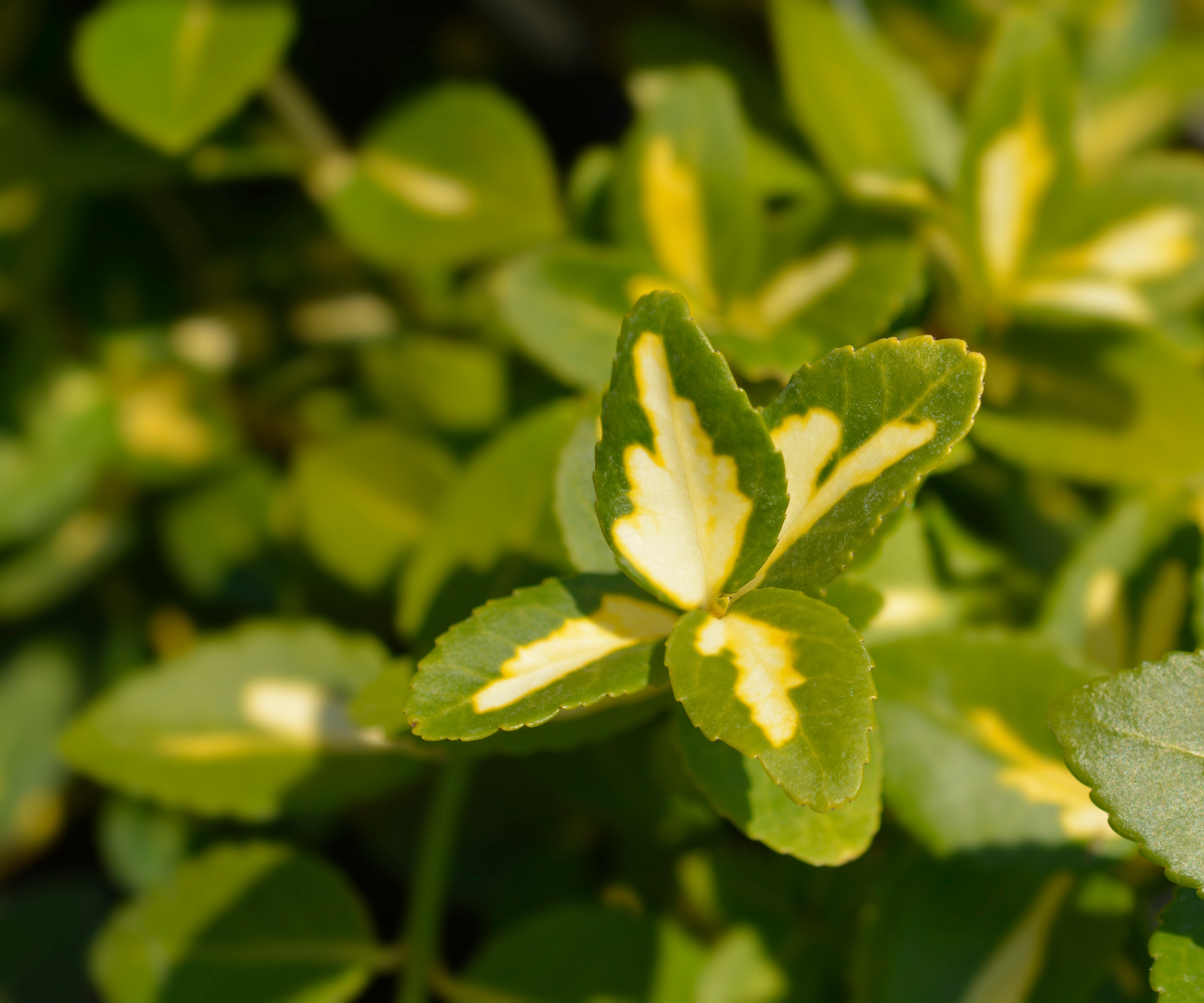
Type Evergreen
Good for Mixed borders, containers, and foundation planting
Hardiness USDA Z5
Height 15-24in
Bright green leaves feature a broad central mark covering most of the leaf. Very popular, but sometimes produces plain green shoots which should be cut out.
Euonymus fortunei ‘Coloratus’
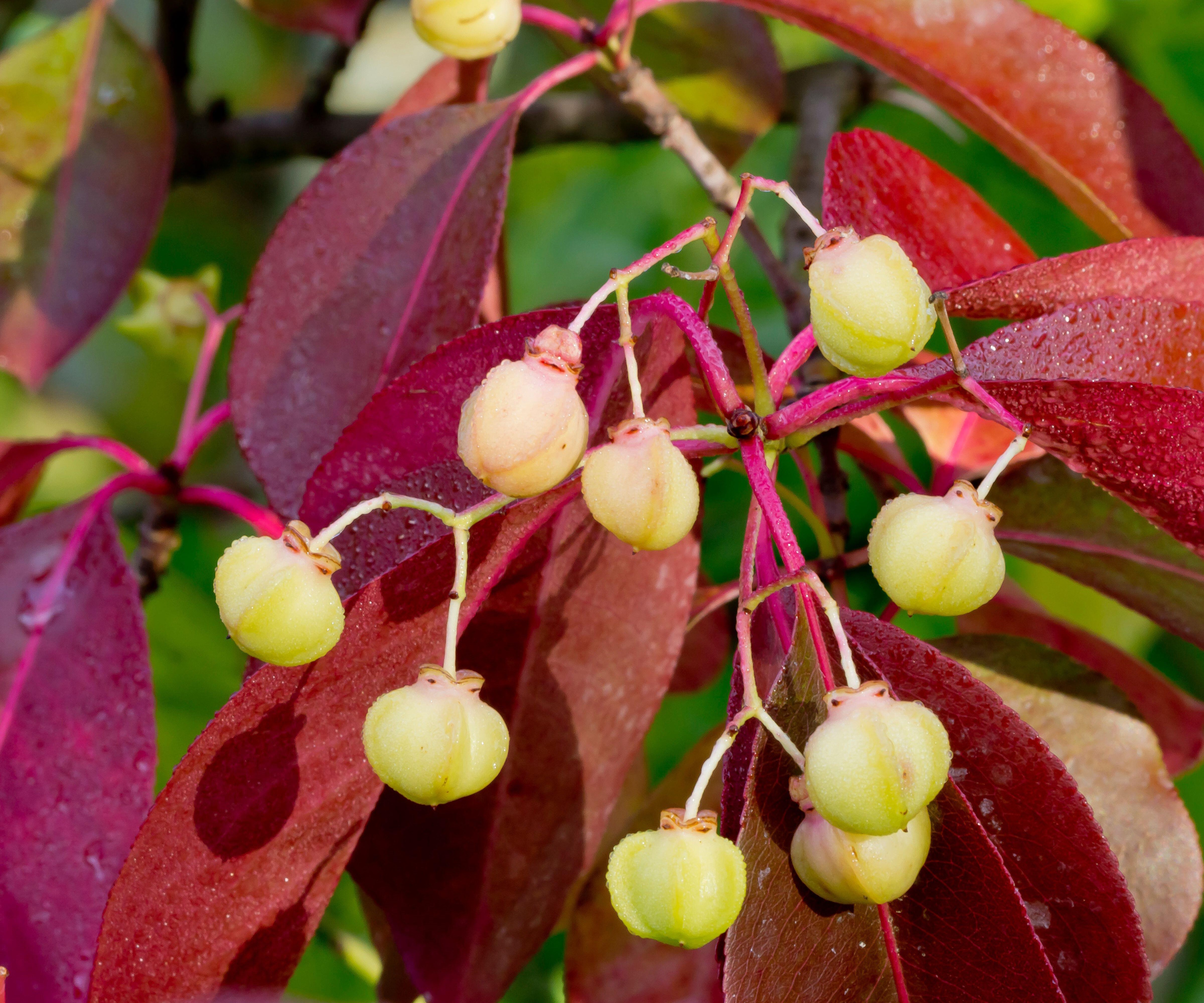
Type Evergreen
Good for Probably the best of all for climbing or trailing
Hardiness USDA Z5
Height 6-20ft
The green foliage turns vivid purple through the winter, especially on poor soils, and often returns to green in spring. A fine climber that will reach great heights over time.
Euonymus fortunei 'Emerald Gaiety’
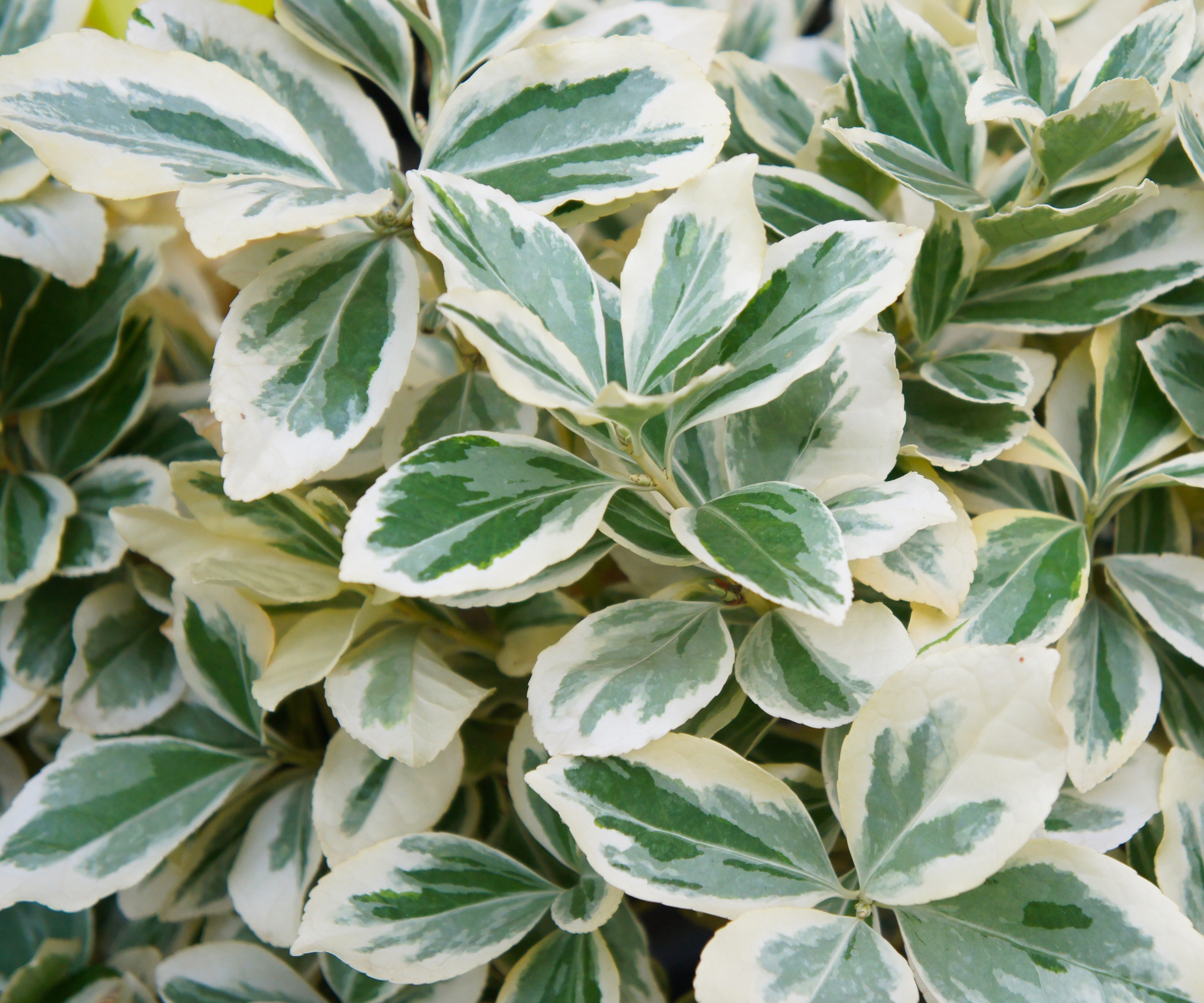
Type Evergreen
Good for A small all-year specimen
Hardiness USDA Z5
Height 3-4ft
A neat rounded rather open plant, the dark green leaves have a white margin that turns pink in winter especially in dry soils. Will climb slowly when planted against a wall. The Emerald Gaiety variety is available to order from Nature Hills.
Euonymus fortunei 'Emerald and Gold'
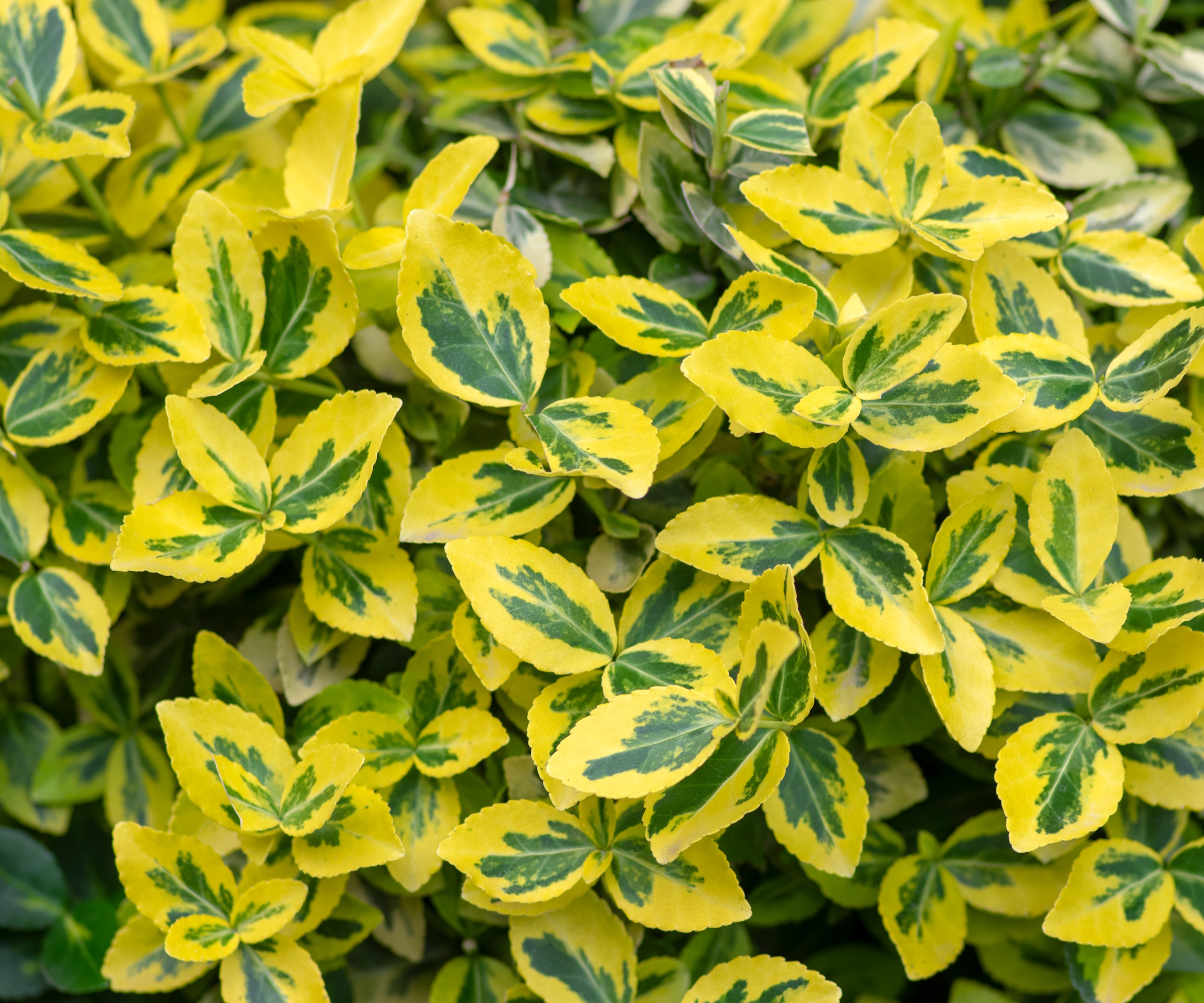
Type Evergreen
Good for Containers, a small all-year specimen
Hardiness USDA Z5
Height 2-3ft
Rich dark leaves are brightly edged in gold, becoming creamier and occasionally pink-tinted in winter. Mature plants may develop pink-and-orange fruits. The Emerald and Gold shrub climbs slowly on a wall or fence, and can be bought at Walmart.
Euonymus fortunei ‘Kewensis’
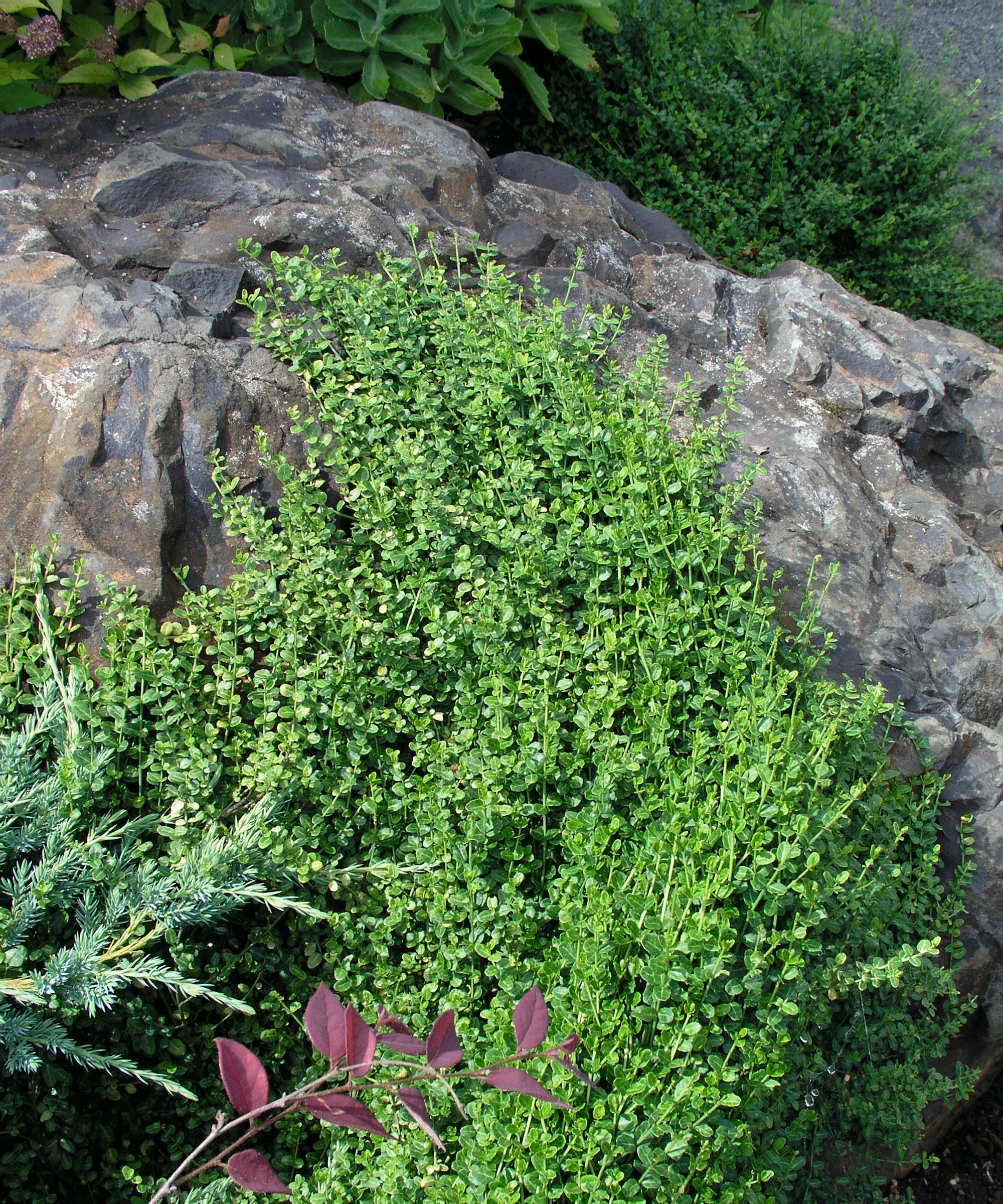
Type Evergreen
Good for Ground cover, climbing
Hardiness USDA Z5
Height 2-18in
A creeping or spreading variety with very small dark leaves with silver green veins that makes a pretty carpet and eventually develops a spikey look. One of the best as a climber.
Euonymus fortunei ‘Silver Queen’
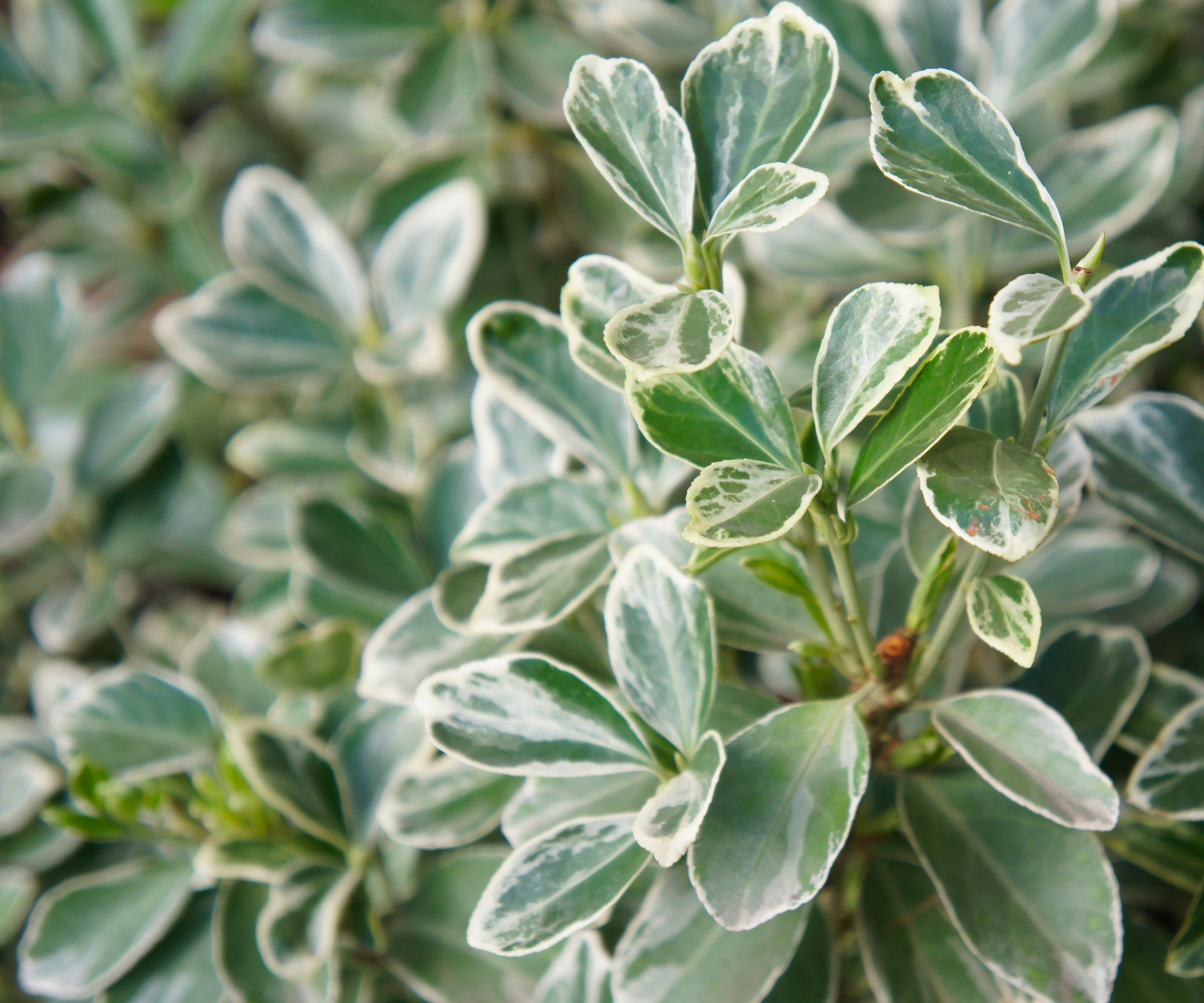
Type Evergreen
Good for Mixed borders, containers, foundation planting
Hardiness USDA Z5
Height 16-24in
Neat and compact, the leaves open yellow, maturing to green with a white edge. This dependable old variety is one of the finest of all variegated shrubs and also fruits well.
Euonymus fortunei 'Wolong Ghost'
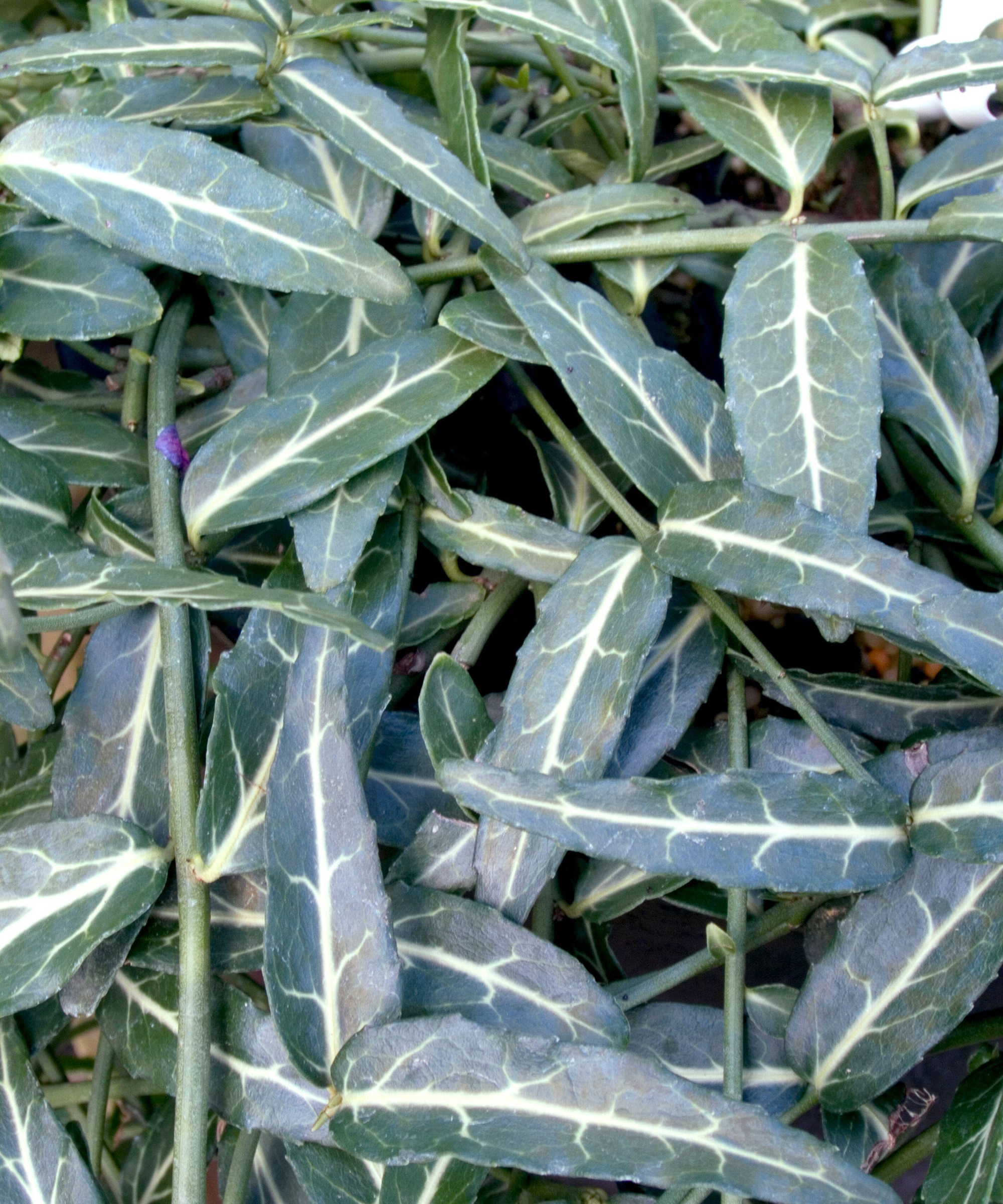
Type Evergreen
Good for Ground cover, containers, covering tree stumps
Hardiness USDA Z5
Height 6-12in
Develops into a low mat of intertwining stems carrying dark, narrow, very pretty leaves featuring a bright white midrib and veins.
Euonymus japonicus 'Chollipo'
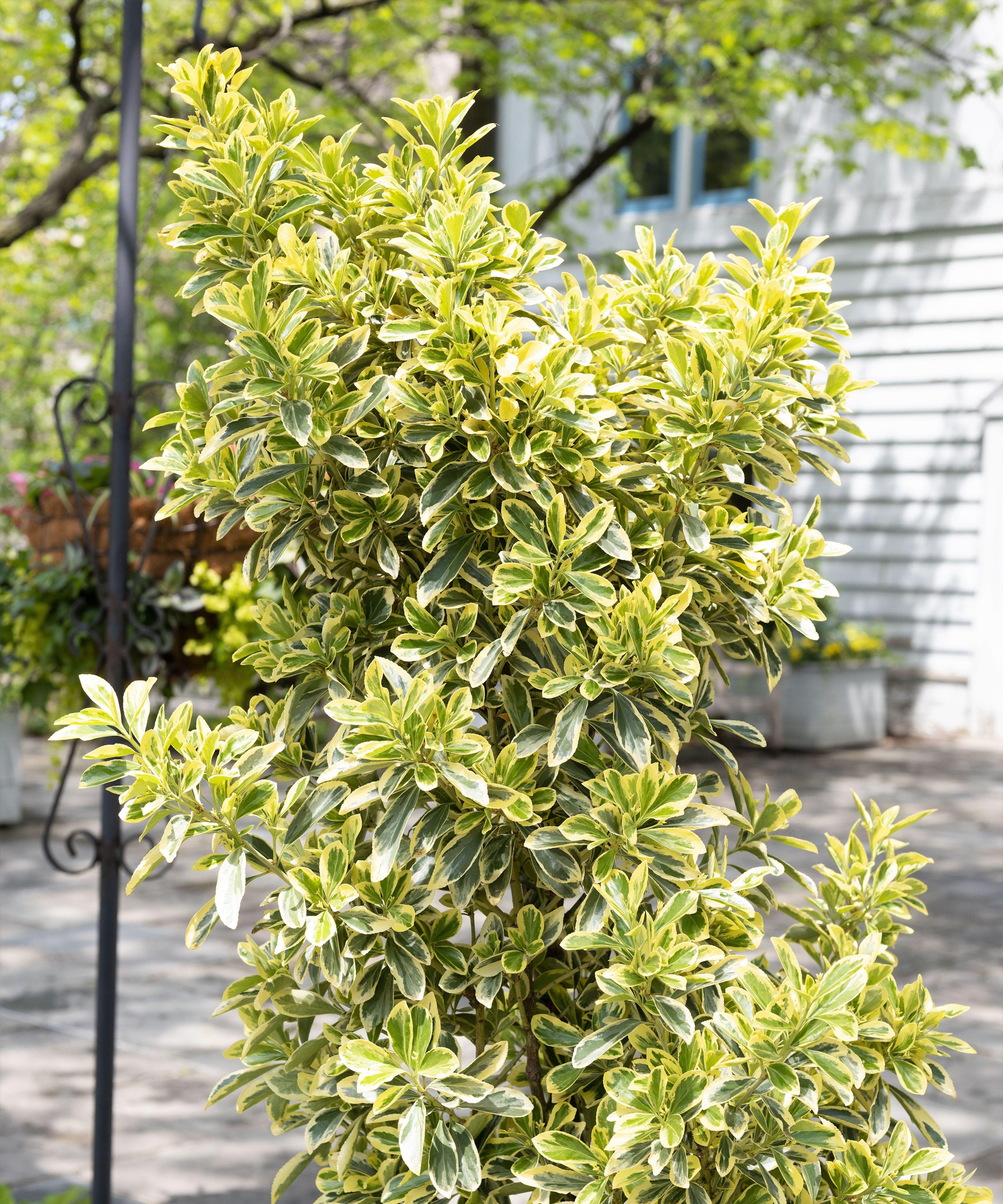
Type Evergreen
Good for Specimen planting, hedging, screens, foundation planting, even topiary and large containers
Hardiness USDA Z5
Height 8-15ft
An impressive, colorful, fast-growing and rather upright shrub with dark green leaves broadly margined in bright yellow for all year appeal.
FAQs
What's so good about euonymus?
All are tough, reliable and need no special care. They grow well in most soils, including chalky soil, that are not waterlogged or parched. The range of options includes evergreen and deciduous, large and small, many with attractive fruits. Plus, a few make impressive variegated climbers, self-clinging like ivies to fences, walls and tree trunks.
Are euonymus invasive?
Some euonymus are North American natives, but some are invasive. The most worrying species is Euonymus alatus which is a fine garden shrub with spectacular fall color and a generous crop of sparkling fruits held well into winter.
However, it produces a large quantity of seeds and young plants are often seen sprouting under and around a mature plant. It spreads into a variety of native habitats including forests, scrublands and prairies where it soon develops into dense thickets. Its tolerance of salty air allows it to spread in coastal areas.
Mainly a problem in the east, from Ontario south to Georgia, it should not be planted in those areas. Check your local extension service for advice.
As well as being good privacy shrubs, euonymus also make great plants for topiary.

Graham Rice is a garden writer who has won awards for his work online, and in books and magazines, on both sides of the Atlantic. He is a member of a number of Royal Horticultural Society committees and the recipient of the 2021 Garden Media Guild Lifetime Achievement Award. He gardened in Pennsylvania for 20 years, but has recently returned to his native England.